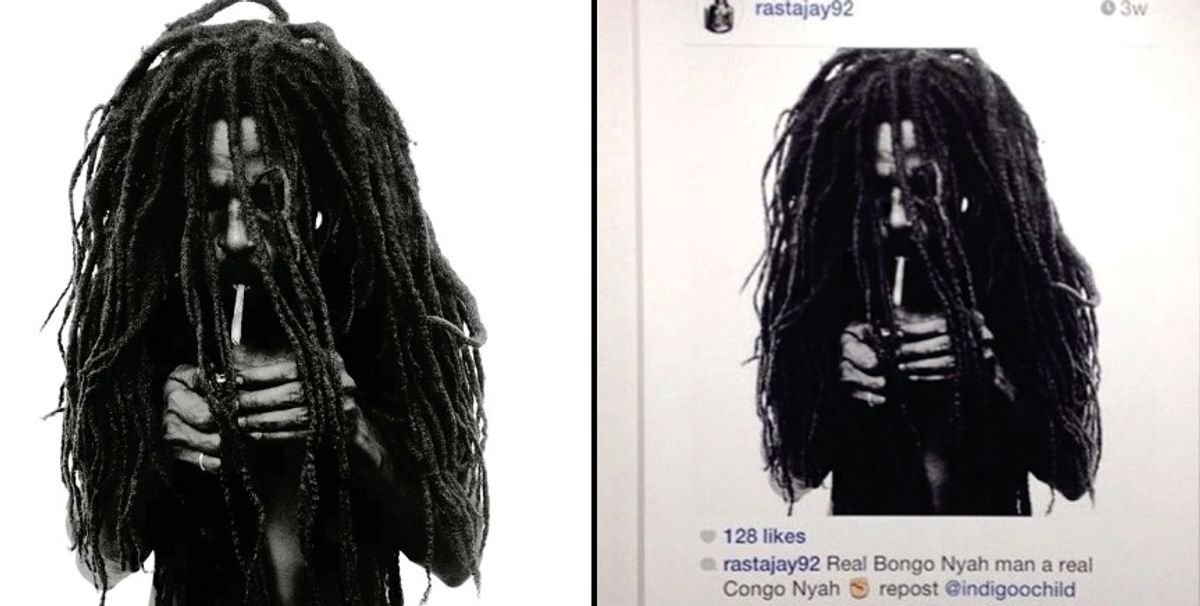A Manhattan federal court judge yesterday (18 July) rejected the request of Richard Prince, the Gagosian Gallery, and Larry Gagosian to dismiss the copyright infringement lawsuit of photographer Donald Graham. Graham alleges that Prince unlawfully used his photograph Rastafarian Smoking a Joint (1996) when he enlarged an Instagram post of it for his New Portraits show at New York's Gagosian Gallery in 2014.
Four other lawsuits have been filed by other photographers alleging the defendants infringed their work in the same exhibition. Yesterday’s ruling was the first decision to address the copyright issues and the case will be closely watched for its interpretation of fair use for images posted via the social-media app.
The defendants argued that Prince’s work, Untitled, was “transformative” of Graham’s work, and therefore non-infringing fair use, and that the judge could decide that by simply comparing the two works side-by-side. Judge Sidney Stein noted that it would be unusual to dismiss a copyright suit so early in a case, before the factual record had been developed. But, responding to the defendants' argument, he said that despite the slight cropping of Graham’s photograph and the addition of comments on the Instagram print in Prince’s work, “the primary image in both works is the photograph itself. Prince has not materially altered the ‘composition, presentation, scale, color palette, and media’ originally used by Graham”.
Judge Stein compared the case before him to the Second Circuit Court of Appeals 2013 ruling that 25 of Prince’s Canal Zone paintings were transformative of Patrick Cariou’s photographs in part because they had “an entirely different aesthetic”; Cariou’s were described as “serene”, Prince’s as “crude”. The judge wrote, “Prince’s Untitled does not make any substantial aesthetic alterations to Graham’s Rastafarian Smoking a Joint."
The judge said he couldn’t determine whether Prince’s alterations gave a new expression or meaning to Graham’s original without substantially more evidence, such as art criticism and Prince’s own statements of his intention.
Although the case was not dismissed, Prince’s lawyer, Joshua Schiller, of Boies, Schiller & Flexner, pointed out it was still in its early stages. “The judge applied the wrong standard," he says. “We will be able to show fair use.”


